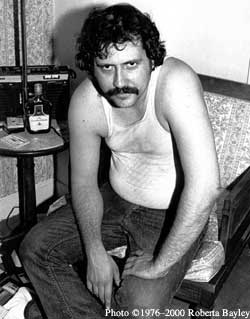THE TIME TRAVELER'S WIFE

|
| a good read at any time |
My friend Alicia, whose book recommendations I religiously trust, spoke so highly of
Audrey Niffenegger's The Time Traveler's Wife that I went out immediately and put it on my library hold list. It wasn't quite as popular as
The DaVinci Code (where I'm somewhere around 100 out of 231 people waiting in queue), but it still took nearly a month to come into my local library. I picked it up yesterday but avoided reading it for most of the day because 1) I had dissertation work to do and 2) it just looked long and I never like starting a book that I don't think I can reasonably finish in one sitting if I absolutely had to.
Like an idiot though, I didn't start reading it until 1am and pretty soon, it's 2am and I finish Part 1 (roughly 250 pages) at around 3am which would be a logical place to stop - it's late, I've gotten through half the book in two hours (I skim at times, I know, cheap) but I'm so hooked at this point that I pull a
When Harry Met Sally and jump to the end. Well, that's simply no good because now I'm moving backwards through the chapter to figure out how the narrative got to where it ends - which is beautifully by the way...reminds me a little of Ondatje and
The English Patient except that I can't get that schmaltzy
Christopher Reeves' movie, Somewhere In Time out of my head (truly an unfortunate connection). I end up skimming the entire second half and then slowed down to read the last few chapters again.
I finally had to stop at 4:20am but slept poorly and ended up waking up at 7am and finished the second half before 9am. Yeah, I know, stupid of me but I'm like that with books. A good one will just keep me suckered in the whole way through until I hit end...this is precisely why I should never start a book at 1 in the goddamn morning.
You can read a basic synopsis of the book at the link above but my take on it is that
The Time Traveler's Wife is actually a fairly conventional "you had me at hello" love story between two star-, or I guess here, time-crossed lovers. The twist is that the narrative is told in a fantastical, fascinating way that maniacally jumps around with time and place. It's tempting to call Niffenegger's narrative structure a gimmick but it actually worked for me - after all, she's trying to convey the sense of chaos that exists for someone who is randomly being thrown out of time at any given moment. In that regard, I think she succeeds quite well in forcing the reader to deal with the incongruous experience such a phenomenon would entail.
I would suspect there has been much talk about making this into a movie which could both be a really fascinating process or something utterly terrible (I suspect the latter). I kind of like that it doesn't work as a film - I like that, as a book narrative, it takes you places that would lose something if you tried to represent it visually.
I do think the book loses some momentum in its second half - our two protagonists Henry and Clare have now "found" each other in the same time frame and like all great love stories based around the tension of the unattainable, once they hook up, the narrative threatens to jump the shark. Niffenegger does a decent job in navigating around that but the first half is definitely more of a rush while the second half slows things down more deliberately in order to get to the payoff at the end. The ending is decidedly heavy on the schmaltz factor, with a healthy dose of
Titanic-esque monologuing at the end but I'm kind of a sucker for that stuff anyways and in my limited prose experience, I thought it was written quite well.
All things being equal, this was an incredibly satisfying read - one of the first books I've read in as long as I can remember that almost had me on the verge of bawling like a little kid (which, if you really knew me, is a miracle since I NEVER cry. Ever.)
Postscript: I've been trying to figure out why I find the ending so affecting (and don't worry, no spoilers here) and besides just, you know, melodramatic prose, I realize that the book ultimately confirms - from my read at least - that there's a benevolent logic to the universe. Call it God or destiny or whatever, but Niffenegger introduces a subtle element of the Divine that, despite my agnostic self, appealed to me.


























